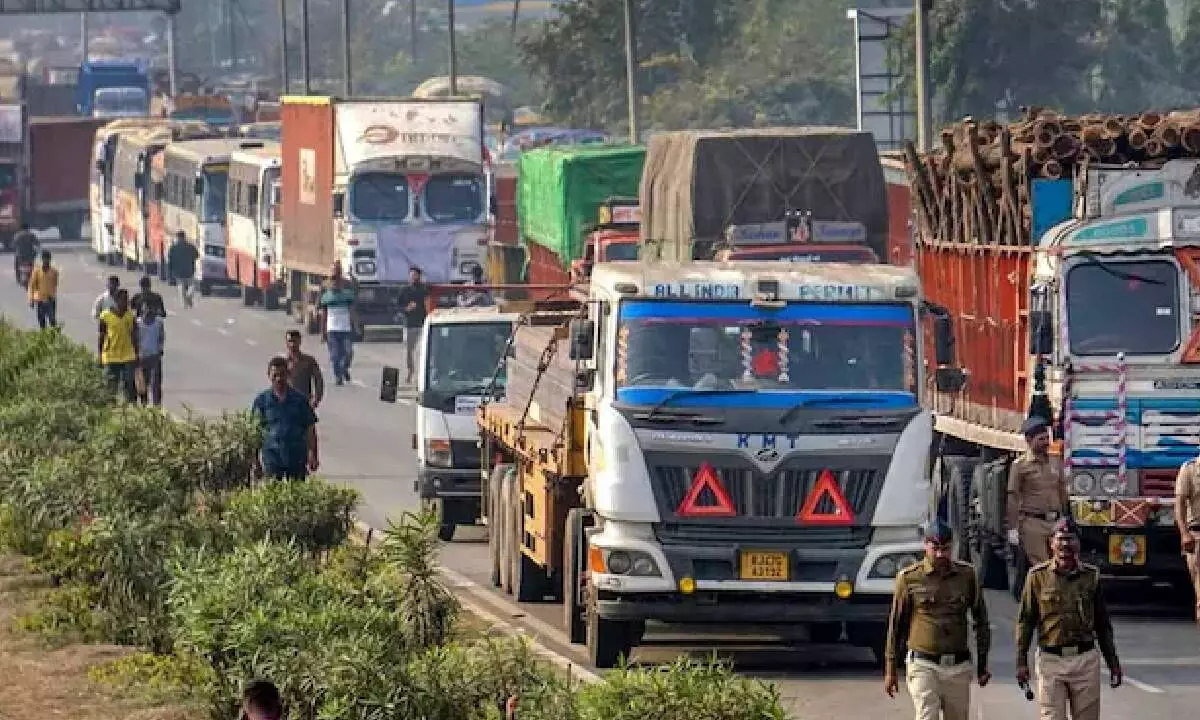The Centre should have no truck with unilateralism
People all across the country heaved a sigh of relief when the All India Motor Transport Congress (AIMTC) ended its protest against the proposed punishment in hit-and-run cases under the new Bharatiya Nyay Sanhita (BNS).
image for illustrative purpose

People all across the country heaved a sigh of relief when the All India Motor Transport Congress (AIMTC) ended its protest against the proposed punishment in hit-and-run cases under the new Bharatiya Nyay Sanhita (BNS). The Union Ministry of Home Affairs has reportedly assured AIMTC representatives that they would be consulted before arriving at a decision. That is the way things should be in a liberal democracy. Unfortunately, the powers that be tend to act in a unilateral manner, or without adequate discussions with the stakeholders. This happened in the case of the three farm laws that the government enacted in 2020. Those were excellent pieces of legislation with the potential to hugely boost agriculture, but the manner in which these were introduced and cleared in Parliament gave rise various doubts and misgivings, resulting in a massive protest and finally their withdrawal. The government’s intentions were noble and the laws were good but the absence of proper consultation with the stakeholders boomeranged on the government. In the latest instance too, it seems like communication with the truckers has been far from satisfactory.
Again, the government’s objective here too is good: it wants to check hit-and-run cases. Typically, the non-communicative attitude percolates downwards. A video clip of an interaction between officials of Madhya Pradesh’s Shajapur district and truckers became viral, in which the collector is seen losing his temper and shouting at the driver, “Kya auqat hai tumhari?” The word ‘auqat’ has a loaded connotation in Hindi or Urdu, implying the worthlessness of the person it is addressed to. The collector paid the price but the incident underlined the attitude of the authorities towards people, especially those at or near the bottom of the pyramid, the highfalutin pro-poor political rhetoric, notwithstanding. The BNS has a provision of 10-year punishment for hit-and-run culprits; while as per the present IPC, which the BNS is intended to replace, it is two years jail. AIMTC representatives say that drivers often run away after an accident because of the fear of lynching, even if they are not at fault. This is a real concern; in fact, it is a slur on the nation that in this day and age the fear of barbaric lynching still exists.
At the heart of the matter is the fact that people don’t have much faith in the justice system, the law and order machinery and the administration in general. A country that aspires to become a major global power cannot allow such a situation to persist for long. The long-term solution lies in bringing about judicial, police and administrative reforms. In the short and medium term, the government—indeed the entire political class—needs to adopt a cautious approach whenever there is an issue with wide-ranging ramifications. Dialogue with the concerned stakeholders must precede any major decision. To the credit of the government, it did show alacrity in addressing the concerns of truckers. As the strike entered the second day and 2,000 petrol pumps in western and northern India started running out of fuel, it met AIMTC members and sorted out the issue. After all, a proactive approach would be better than reactive alacrity.

